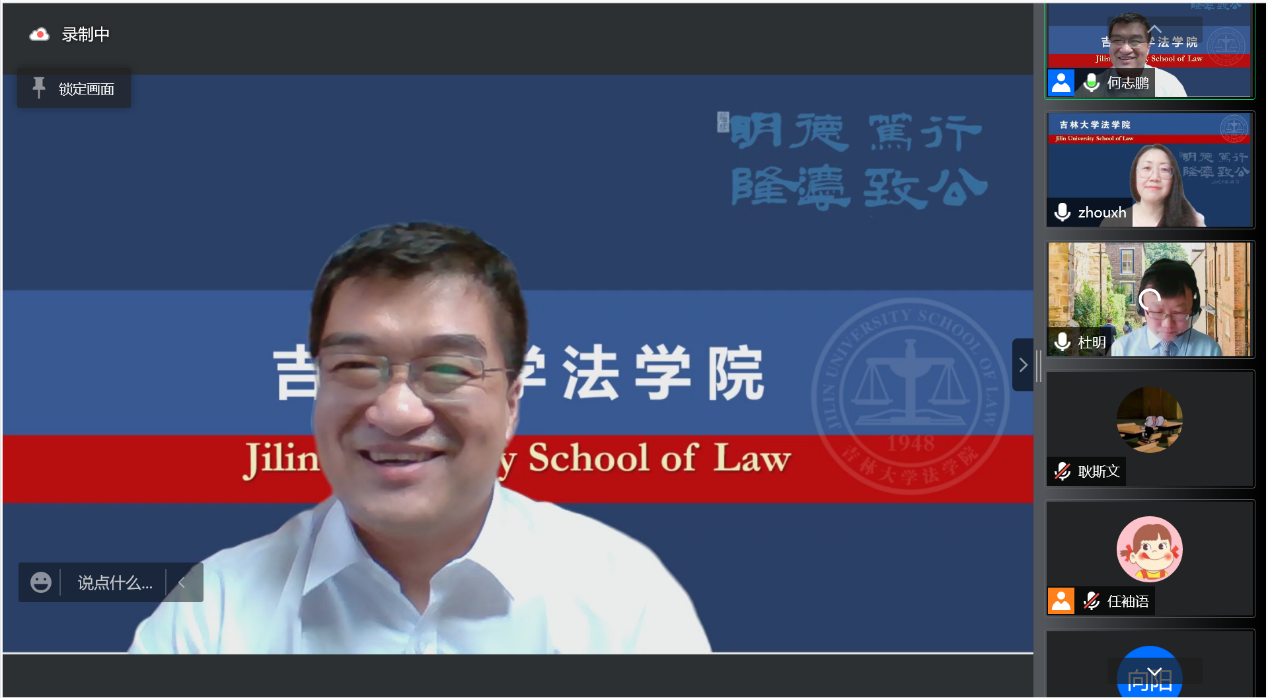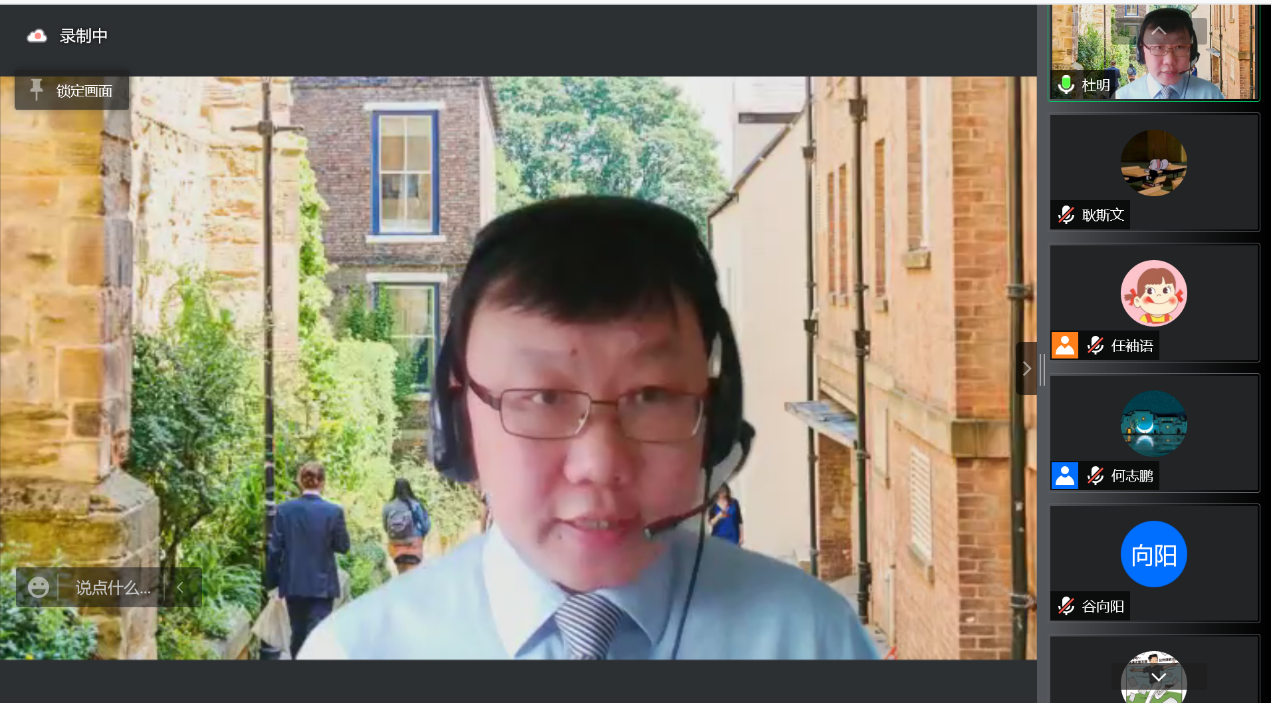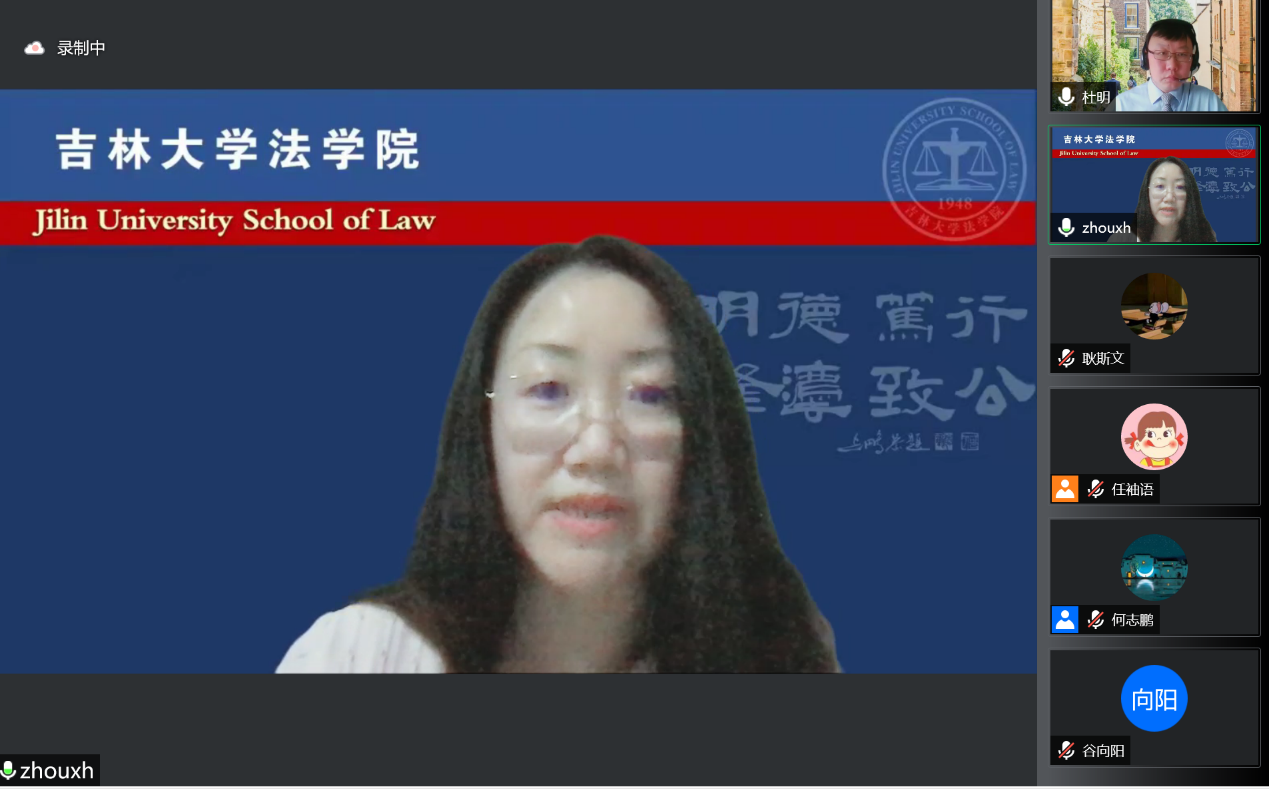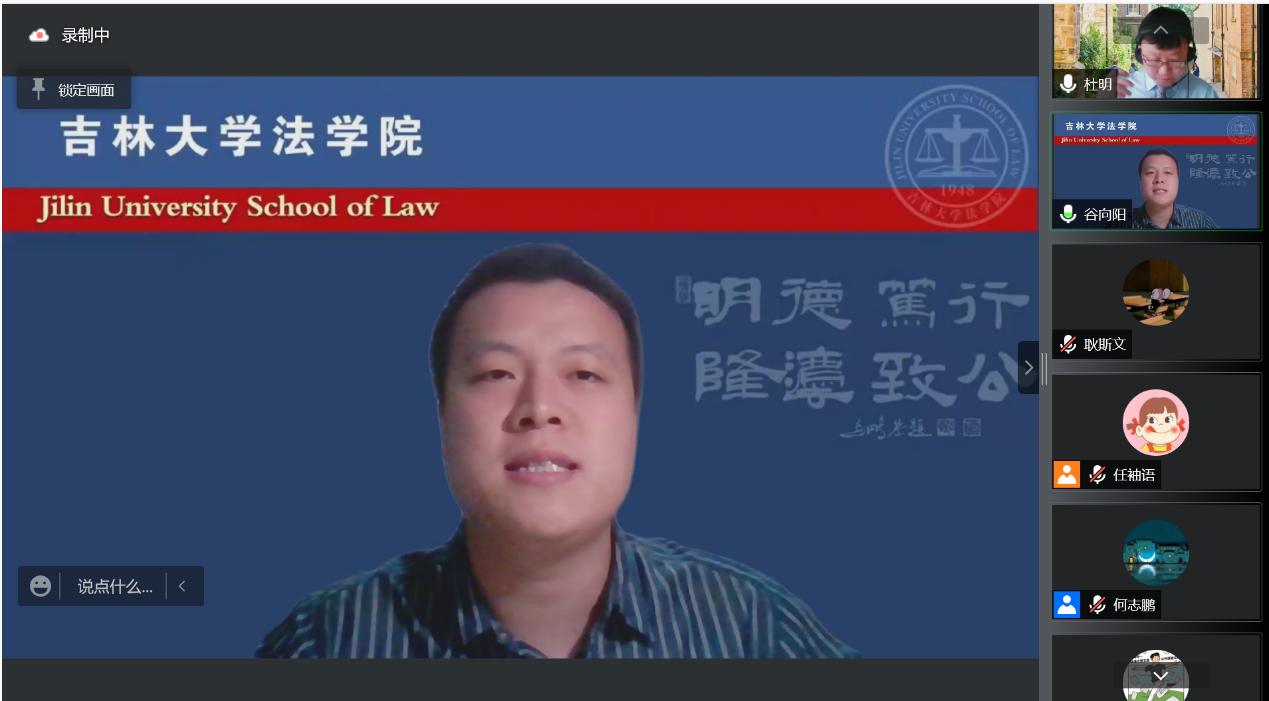Professor Du Ming, visiting professor at JLU School of Law and professor at Durham University Law School, gave a lecture on “International Economic Law in the Era of Great Power Rivalry” on May 26. The lecture was presided over by Professor He Zhipeng, Dean of JLU School of Law. Associate Professor Zhou Xiaohong presented as Panelist. Hundreds of students participated in the lecture.
Dean He delivered an opening speech to welcome Professor Du Ming as his joining in JLU School of Law would boost the development of the discipline of law at Jilin University. Amid the great changes unseen in a century, Professor Du Ming’s lecture on “International Economic Law in the Era of Great Power Rivalry” closely followed the theme of the times by analyzing the code of international competition from a unique perspective, which broadened the academic horizons of the participants.

Professor Du Ming put forward three main academic viewpoints: First, the economic globalization began in the early 1990s has come to an end, and international relations have entered an era of great power rivalry. Second, influenced by international political environment, a series of new features, directions and changes have emerged in international economic law, which regulates international economic relations. Third, in the face of the rapidly changing international economic law, China needs to review and take advantage of international economic law, in a bid to protect rights and interests. Next, Prof. Du responded to questions such as “Why do we say we have entered the era of great power rivalry? What are the new changes in international economic law under great power competition? How can China make good use of international economic law?” Prof. Du pointed out that the era of great power rivalry is expressed by the United States confronted with the rise of other States (especially China), which represents its official position rather than its academic proposition. To this end, international economic law features in two parts: first, the theoretical concepts underlying international economic law have been challenged; second, unilateral trade measures, politicization, securitization and regionalization of economic and trade relations are the new norm of international economic and trade relations. In addition, Prof. Du emphasized that China should strengthen economic, military and diplomatic development to play a greater role in making international economic rules, and continue to expand opening-up for the purpose of win-win results.

During the discussion session, Associate Professor Zhou Xiaohong highly commended the theoretical and practical significance of the lecture. As She added, one reason for entering the era of great power rivalry is the decline of the United States’ own structural control capability, which is decided by its macroeconomic policies and foreign policies over a long time, as well as factors such as the multi-polarization of international relations and the rise of emerging markets like China. Moreover, the non-cooperative attitude or exclusive measures of the United States in international relations are manifested in many aspects, such as stronger reinforcement and application of US law, the withdrawal from existing trade agreements, and the creation of new trade rules and proposition to amend multilateral economic and trade rules.

During the Q&A session, the participants interacted actively. Wei Xiaoxu, a 2018 PhD candidate, raised the question of “whether China and the West can and will understand each other.” Zhao Jianzhou, a 2020 PhD candidate, asked “in terms of ‘justice and interests’, how should China react to integrate its national interests with international order.” Finally, Gu Xiangyang, a postdoctoral fellow as Jilin University’s “Dingxin Scholar”, asked “As China is upgrading opening up, will China be more or less attractive to foreign markets?”
Professor Du Ming stated that the understanding between China and the West should be viewed dialectically. With regard to issues of universal value, China and the West can understand each other, but there will also be incommensurable situations between them. The question also relates to the contingency of history. Prof. Du said that the implementation of Chinese concepts, including the norm of “justice and interests”, is an important subject, and the answers need to be found from historical experience.

Associate Professor Zhou Xiaohong also shared her views. She emphasized, respect for the diversity of political and economic systems and social culture is a fundamental principle established by the UN Charter. Such differences could bring about situations in which other States “do not understand” China. However, the real conflict of interests between States cannot be solved by “understanding” alone. The complication of international relations requires us to think with complexity in mind and discuss solutions under specific circumstances. There is no universal method applicable to all issues. Looking to the future, we cannot decide what the other States will do, but it is certain that China will insist on opening-up, supporting the multilateral trading system, and striving to create a stable and predictable institutional environment for international business interactions.
Professor He Zhipeng shared four insights. First, “rivalry” is better than “struggle”, and rivalry is a moderate order both at present and in the future. Second, law is the result but not the cause of politics. Political and economic factors are intertwined to form the current legal environment of China. Third, law should be understood from its premise and origin, not just the law itself. Fourth, as for the question “Where is China at present?”, Professor He Zhipeng remarked that responses to global pressure is a distinctive feature of China’s current path of development. China should launch a systematic and forward-looking strategy to enhance the world order and China’s future.
The lecture is Professor Du Ming’s first academic presence at JLU School of Law, and it is also a successful attempt of the school to enhance internationalization. Actively engaged in the lecture, the attendees have gain academic insights through discussion. In addition to students from JLU School of Law, the lecture also attracted the attention of students from East China University of Political Science and Law and other institutions. The lecture has expressed strong voice of Jilin University in the platform of international law.